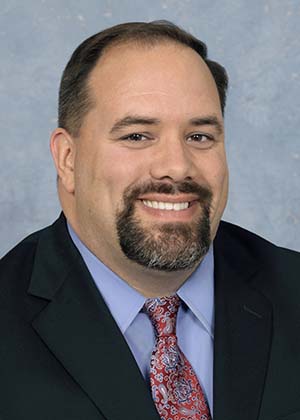Pass Flint authority to ensure water funds used effectively

It’s fast approaching the one-year anniversary of Dr. Mona Hanna-Attisha courageously stepping forward to expose the tragic impact of the Flint water crisis. With all the headlines dying down and news trucks leaving Flint, it’s important to remember that there are still families, including my own, that cannot safely and reliably drink water coming from their tap.
Relief efforts have been fractured, delaying desperately needed help and demoralizing the community. As Bridge Magazine has already reported, there’s some funding coming in, but not enough results coming out. We have persistent, challenging issues that demand comprehensive, long-term solutions. Dedicated volunteers and generous groups like the C.S. Mott Foundation have been doing their part to assist in relief efforts, but we need to create a structure that will help us sustain the decades-long recovery that is necessary.
Lansing has taken a step forward by appropriating resources and the city’s government is working hard to deal with state bureaucracy while still performing its duties for citizens, but Flint needs a dedicated team to manage the restoration of its water supply.
In late May, I introduced Senate Bill 979 to help bridge that organizational gap. The bill would allow for the formation of a municipal recovery and development authority, similar to authority structures that have been successfully utilized in the past. It would be managed by a board of directors appointed by the city’s own local government. The members, including a civil engineer, accountant, education professional and health professional, would guarantee that funds were being used effectively, with the city’s best interests in mind. These experts would be able to provide additional capacity to a city that’s already strapped, allowing city personnel to focus on addressing the day-to-day needs of its citizens.
There’d be no secrets, either. Under this legislation, the board itself would operate with full transparency and would be subject to the Open Meetings and Freedom of Information acts — because local residents deserve a greater say in their futures, especially in Flint.
It’s an incredibly frustrating situation that residents are forced to deal with, and it demands far-reaching reforms — including massive infrastructure, educational and economic initiatives.
Last spring, I served on the Joint Committee on the Flint Water Public Health Emergency. We held multiple hearings to determine what kinds of policy changes Flint needs to ensure its recovery and to prevent a disaster like this from ever happening again. The committee’s official report needs to be made available soon so the Senate can act on much-needed legislation in the coming weeks. My priorities will be making sure it includes substantial changes: a long-term commitment, more accountability and oversight, and a renewed focus on public health.
No community should have to go through what happened in Flint.
We need to make sure that’s the case and that Flint has the support it needs, long after the reporters have gone home and there’s a new governor or legislature. The state alone can’t undo the damage that’s been done to the people of Flint, but we can take steps now to position the city for long-term success — and protect others from a similar crisis.
See what new members are saying about why they donated to Bridge Michigan:
- “In order for this information to be accurate and unbiased it must be underwritten by its readers, not by special interests.” - Larry S.
- “Not many other media sources report on the topics Bridge does.” - Susan B.
- “Your journalism is outstanding and rare these days.” - Mark S.
If you want to ensure the future of nonpartisan, nonprofit Michigan journalism, please become a member today. You, too, will be asked why you donated and maybe we'll feature your quote next time!


 Jim Ananich is a Democratic state senator representing Flint
Jim Ananich is a Democratic state senator representing Flint